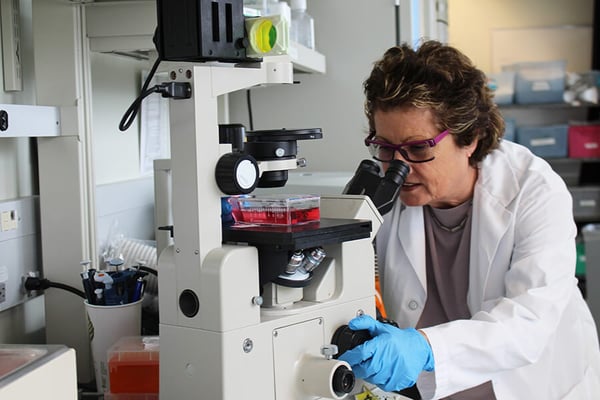COVID-19: Another Potent Antiviral Drug in the List

Dr. Eleanor Fish led the international team of researchers. Image © University Health Network (UHN)
A team of researchers has recently found that an antiviral drug can help speed up the recovery of COVID-19 patients. The international team was led by Dr. Eleanor Fish, Scientist Emeritus at the Toronto General Hospital Research Institute, University Health Network (UHN), and professor at the University of Toronto's Department of Immunology.
According to their research, treatment with interferon(IFN)- α2b may significantly accelerate virus clearance and reduce levels of inflammatory proteins in COVID-19 patients. A paper describing their work was published in the journal Frontiers in Immunology on 15 May 2020.
The team tested the interferon(IFN)- α2b on 77 COVID-19 affected adults. For this they admitted individuals with suspected COVID-19 to Union Hospital, Tongii Medical College, Wuhan, China, during the period January 16–February 20, 2020. Based on the preliminary test those patients were tested positive for symptoms like fever, chills, cough, sore throat, headache, nasal discharge, myalgia, fatigue, shortness of breath and/or diarrhea, and the date when they appeared those symptoms were also recorded. The patients were treated with either nebulized IFN-α2b (5 mU b.i.d.), arbidol (200 mg t.i.d.), or a combination of IFN-α2b plus arbidol.
The team became optimistic about testing COVID-19 by IFN-α and decide to test interferon(IFN) when interferon provided therapeutic benefit during the SARS outbreak of 2002 and 2003.
Dr. Fish said, "Rather than developing a virus-specific antiviral for each new virus outbreak, I would argue that we should consider interferons as the 'first responders' in terms of treatment."
Every patient's throat swab specimens were tested by real-time polymerase chain reaction (RT-PCR) for SARS-CoV-2 and the specimen of patients suspected of having SARS-CoV-2 infection was placed into collection tubes prefilled with 150 μL of virus preservation solution. RNA was extracted using a respiratory sample RNA isolation kit. Then a complete blood count and serum biochemical tests were assessed as per the Union Hospital's routine clinical laboratory procedures.
In particular 7 patients were treated with nebulized IFN-α2b, 24 patients were treated with Arbidol (ARB) and 46 were treated with the combination of IFN-α2b plus ARB. The treatment on the patients started within a certain time of the positive result of the PCR test. For 50% of all cases, treatment was started within 72 hours of confirmation of infection by a PCR result, for 75% of cases, treatment started within 96 hours of a PCR test and for 95% of cases, within 10 days of PCR.
For any signs or symptoms of end organ dysfunction, they performed serial clinical evaluations on all patients and they found no side effects or dysfunction.
They practically observed that the treatment with IFN-α2b, whether alone or in combination with ARB, accelerated viral clearance when compared to ARB treatment alone and this also showed the reduction in circulating levels of inflammatory factors that are associated with severe COVID-19.
Surely this study provides several important and novel insights into COVID-19 disease and made us stand one step closer for detecting the antiviral drug of COVID-19 disease.
Though the tested group was small, non-randomized, and unbalanced demographics, this work provides several important and novel insights into the antiviral drug formulation of COVID-19 disease.
In the near future research team will be starting a clinical trial with a larger group of infected patients who will be randomized to treatment.
